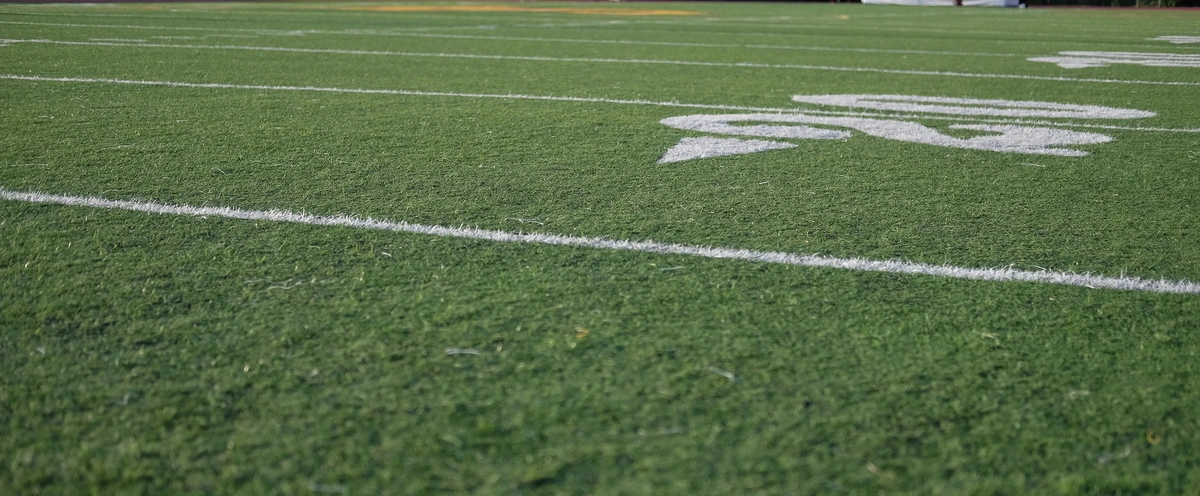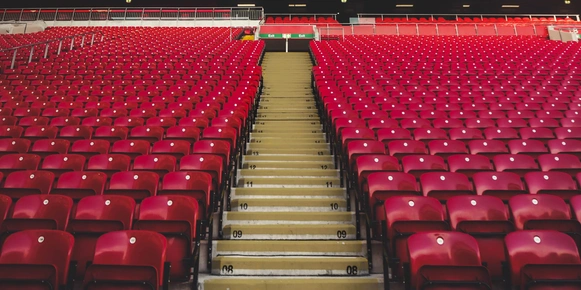All You Need to Know about the Super Bowl: History, Tickets, Teams, and More
- Sports
by Gametime

There’s a reason Super Bowl tickets are so expensive: it’s so much more than just a football game. The Super Bowl’s incredible popularity brings together tens of thousands of fans every year to get a glimpse of the action, and millions more huddle around their high-def TVs at home on Super Bowl Sunday. The Super Bowl is broadcast around the world in more than 170 different countries, making it one of the world’s most-watched sporting events ever.
But the Super Bowl is bigger than just one championship game. A Super Bowl ticket holder gets to be part of a half-a-century-old tradition of incredible football, glitzy celebrity appearances, epic halftime shows, and, for those watching at home, some of the smartest, most entertaining, and expensive commercials of the year. All of this fanfare makes the Super Bowl one of the most uniquely American cultural experiences ever—one that shows no signs of slowing down any time soon.
The early days of the Super Bowl
The first Super Bowl tickets went on sale in 1967, but the NFL as a league has been around much longer than that. In fact, the National Football League was founded back in 1920. For 40 years, the NFL was the only professional football league in the U.S., until the American Football League (AFL) was created as a rival association in 1960. The competition was bitter for half a decade until an agreement was forged to merge the NFL and AFL into one national league.
As part of the merge to a unified league, two separate conferences were created: the National Football Conference (NFC) and the American Football Conference (AFC). Before merging, though, the first championship game played between the two leagues was known as the AFL-NFL Championship. Boring. We can thank Lamar Hunt, former owner of the Kansas City Chiefs, for the legendary name we use for the game today: "The Super Bowl.”
The first Super Bowl
Not only can Kansas City take credit for the name of the game, but the team also played in the very first official Super Bowl in 1967. The Chiefs took on the Green Bay Packers at the Los Angeles Coliseum, kicking off a tradition that would last for years to come. The Chiefs didn’t get all the fame, though… the Packers would embarrass them with a final score of 35-10.
Super Bowl tickets in 1967 averaged about $12—only around 90 bucks when taking inflation into account. Believe it or not, the game wasn’t even sold out! There were tickets available at the box office right up until kickoff. Even so, with two networks broadcasting the game, thousands of people across the country were able to enjoy the event from home.
The great—but short-lived—NFL blowout
The following year, things were different—the Super Bowl sold out for the first (but definitely not last) time. The Packers made it to the championship once again, squaring off against the Oakland Raiders, but Green Bay couldn’t be denied. The Raiders were sent packing 33-14, and Super Bowl ticket holders began to wonder if the AFL made a mistake merging with the NFL, considering that the NFL’s Packers seemed to be demolishing every AFL team they were matched against.
But that all changed at Super Bowl III. The Packers didn’t make it that year, and instead, the Baltimore Colts represented the NFL. Joe Namath and the AFL’s New York Jets took the wind out of the Colts' sails. Super Bowl IV, the last year before the league merger was finalized, also saw the AFL come out on top with Kansas City finally getting its own championship ring by blowing out the Minnesota Vikings 23-7.
The post-league merger years
The Super Bowl became increasingly popular after the AFL and NFL transitioned to the AFC and the NFC. Super Bowl ticket value skyrocketed in the 70s, especially whenever the Dallas Cowboys, the Miami Dolphins, or the Pittsburgh Steelers were on the field. In fact, these three teams combined won eight of the 10 Super Bowls that decade.
The NFC continued to deliver an amazing performance well into the 1980s and into the 1990s, with major franchises like the New York Giants, the Washington Redskins, the Chicago Bears, and the San Francisco 49ers acting as clear standouts from the rest. The ’90s also saw the resurgence of the Cowboys and the Buffalo Bills as powerhouse franchises. The Bills, though, never did earn that coveted ring, losing a spirit-breaking four Super Bowls in a row.
Recent history of the NFL and the Super Bowl
The AFC was done letting the NFC eat their lunch by the mid-'90s. From 1995 onward, there were five flag-bearing AFC teams—the Colts, Ravens, Steelers, Patriots, and Broncos. These five teams were in 20 of the 22 Super Bowl appearances by the AFC from 1995 to 2016. In the late ’90s and early 2000s, the AFC bounced back.
So far, the 2010s have been more or less evenly split when it comes to NFC and AFC wins. Super Bowl ticket holders cheering for either conference are in good shape for a win, though statistically, the Patriots have been a tough nut to crack—the team has consistently won their division and made it to the Super Bowl a whopping nine times since 2001. Just because the Pats make it to the championship doesn’t guarantee a win, though—they did lose to the Eagles in 2018, resulting in Philly’s first-ever Super Bowl win. We'll see what happens this year when they take on the Rams!
Super Bowl tickets: the elephant in the room
Super Bowl tickets might have been 12 bucks back in 1967, but things sure have changed since then. Thanks to the incredible popularity of what has long since been a touchstone of American culture, getting Super Bowl tickets for anything less than an arm and a leg can often seem completely impossible today.
“But there’s gotta be a better way,” you say? Well, you’re right. You can get Super Bowl tickets at a fraction of the retail face value price if you know where to look—ahem... Gametime. Our ticket marketplace makes it easy to find the most inexpensive Super Bowl tickets anywhere, and you’ll always know what you’re getting thanks to our innovative interactive seating chart. If you’re looking to get last-minute Super Bowl tickets, Gametime’s got your back!
Related Posts:
- Why Last-Minute is the Best Time to Buy Super Bowl Tickets
- How Much Do Tickets Cost for Super Bowl LIII?
- Finding the Cheapest Super Bowl LIII Tickets


